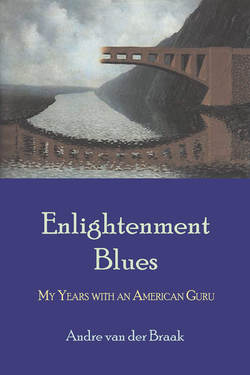Читать книгу Enlightenment Blues - Andre van der Braak - Страница 8
На сайте Литреса книга снята с продажи.
ОглавлениеINTRODUCTION
All religions point to the same transpersonal truth. The realization of this truth is often indicated by the term ‘enlightenment’.
Over the centuries many kinds of approaches have been devised to gain access to that larger truth. One thing they almost all have in common is the need to submit to a spiritual guide or teacher. This is deemed necessary because most of us are too caught up in our conditioning to find our own way out of it. Consequently for the teacher to be effective, the student must trust him or her very deeply.
A profusion of such minded spiritual communities exploded onto the scene during the Sixties and Seventies. As the churches in the West emptied out, the holy sites in the East filled up with westerners hungry for spiritual experiences. A spiritual renaissance was in the air. Westerners enrobed as Buddhist monks, visited ashrams to study yoga, and became followers of westernized Eastern teachers such as as Bhagwan Rajneesh, Chögyam Trungpa Rinpoche, Suzuki Roshi, or Swami Muktananda. Enlightenment seemed at hand.
At the time when my story begins, around the late eighties, the atmosphere had changed. The new goddess Enlightenment was not so easily won. Some of the original enthusiasm had given way to doubt and uncertainty. Buddhist monks disrobed and became meditation teachers in the West. They experimented with psychotherapy, romantic relationship as a spiritual path, and spirituality in daily life. The grandiose ambitions of before were scaled down to more realistic proportions. After the ecstasy, the laundry—as one book title puts it.
Apart from the elusive nature of enlightenment there was another disturbing development. Enlightened spiritual teachers had become embroiled in public scandals, usually related to sex, money or power. This left many dedicated spiritual seekers disappointed and disillusioned. Either enlightenment wasn’t to be attained, or if it was attained, it didn’t turn people into decent humans. There was a general sense of crisis and confusion.
In came Andrew Cohen, a fresh young American boy-next-door who had apparently managed to woo the ever-elusive Enlightenment. In 1986, after having tried many approaches, Andrew went to see an obscure Indian guru, H.W.L. Poonja, a disciple of the famous sage Ramana Maharshi. After a few conversations, the inconceivable happened. Enlightenment descended upon Andrew. In some mysterious way, Andrew had spontaneously morphed from an insecure thirty-year-old into a charismatic spiritual teacher with a silver tongue, exuding great clarity and a mystical presence. Suddenly Andrew was irresistible, and wherever he went people wanted to be around him, and hang onto his every word. He seemed to possess an uncanny ability to transmit a deep glimpse of enlightenment, inspiring people to leave everything behind and become his disciples. Thousands of people still full of hope and longing flocked to see him.
When Andrew came to Amsterdam in 1987, I went to see him. Meeting Andrew was a revelation for me. I felt, like so many others around me, that finally I had understood what enlightenment was, not as a theory but as a living actuality. Those of us drawn to Andrew were also drawn to each other. We were united by a deep love for and surrender to Andrew. We saw ourselves as the latest manifestation of an age-old phenomenon, like Christ and his disciples, stirring up the religious (in this case Buddhist) establishment. We saw Andrew as a “fisher of men” who told us to “let the dead bury the dead.” We were sure that Andrew’s revolution would take the spiritual world by storm.
Andre van der Braak, July 2003
